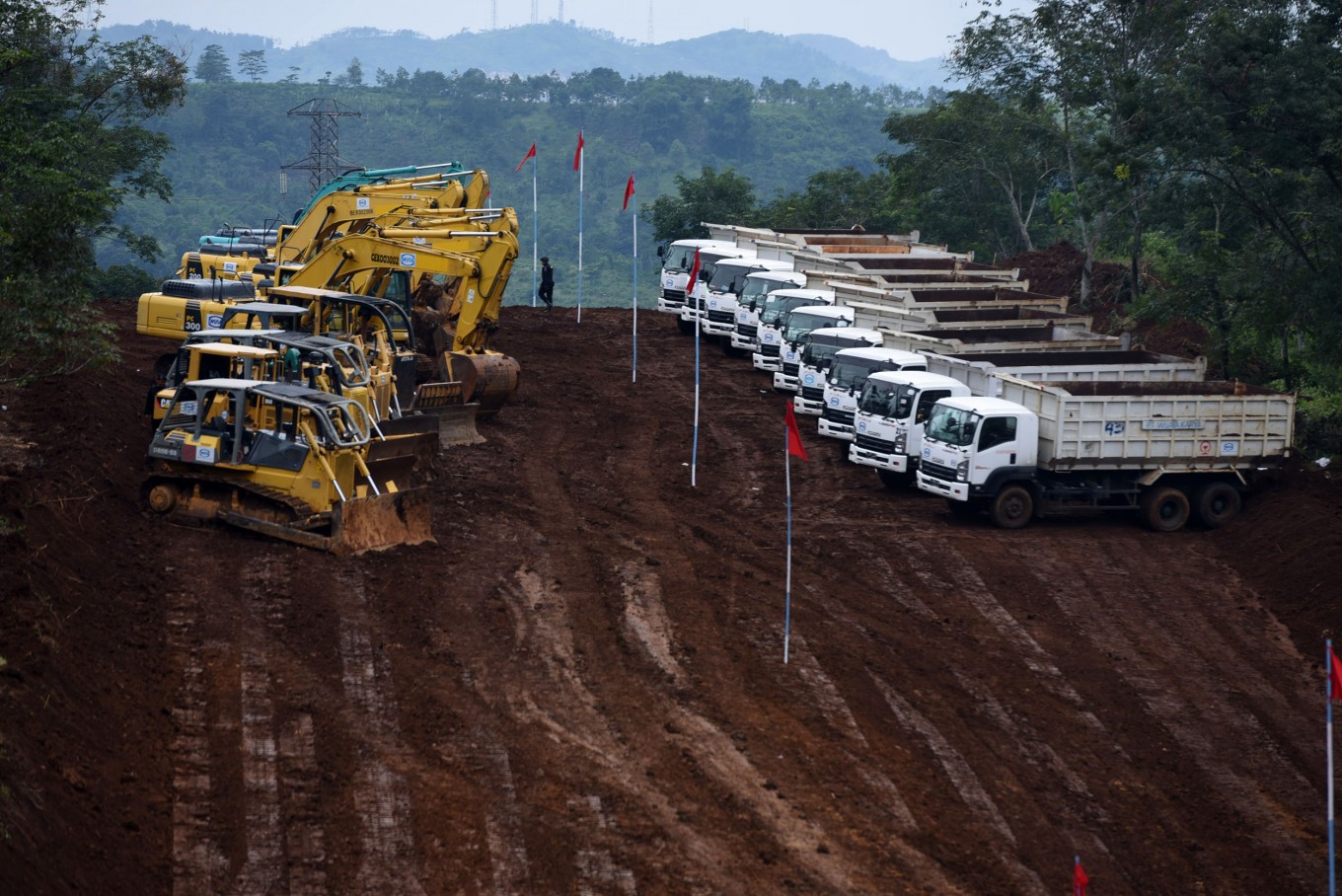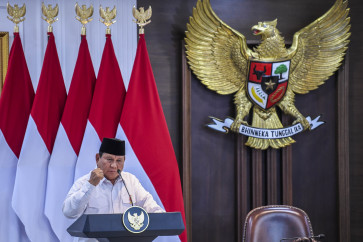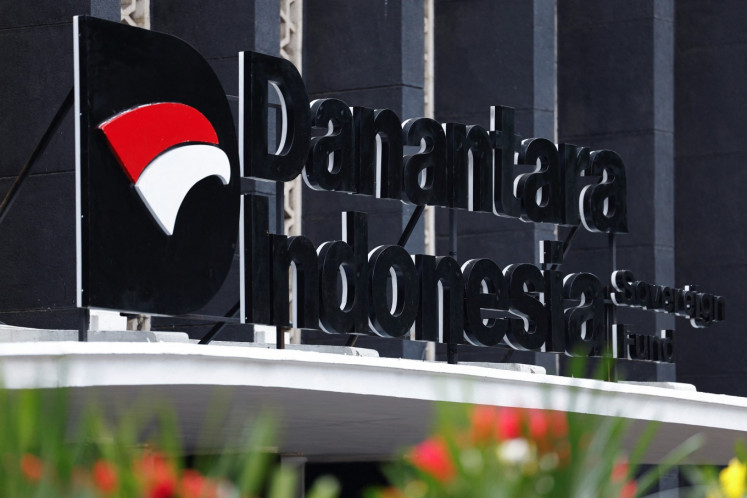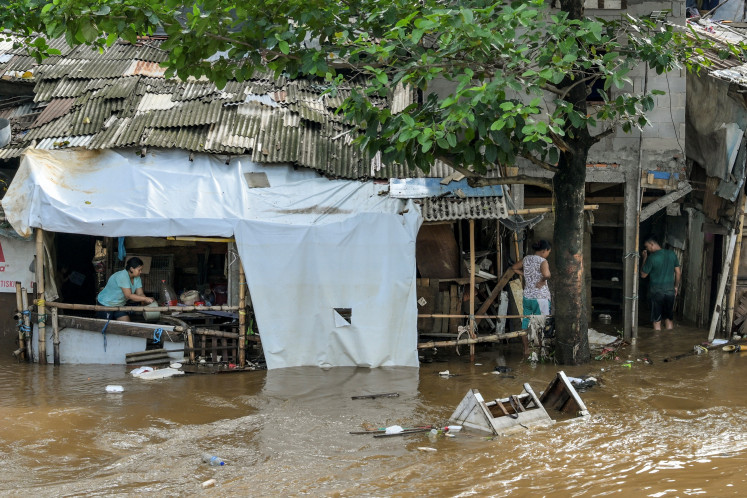Popular Reads
Top Results
Can't find what you're looking for?
View all search resultsPopular Reads
Top Results
Can't find what you're looking for?
View all search resultsMoody's more optimistic about Indonesia’s growth
While the central bank has revised down its economic growth forecast for 2016, global rating agency Moody's Investor Service has revised up its forecast on the back of higher public investment, especially in infrastructure projects
Change text size
Gift Premium Articles
to Anyone
 Police guard the groundbreaking site of the Jakarta-Bandung high-speed train project in Cikalong Wetan, West Java, on Jan. 21. Global rating agency Moody's Investor Service has revised up its growth forecast for Indonesia on the back of higher public investment, especially in infrastructure projects. (ANTARA FOTO/Hafidz A Mubarak)
Police guard the groundbreaking site of the Jakarta-Bandung high-speed train project in Cikalong Wetan, West Java, on Jan. 21. Global rating agency Moody's Investor Service has revised up its growth forecast for Indonesia on the back of higher public investment, especially in infrastructure projects. (ANTARA FOTO/Hafidz A Mubarak)
W
hile the central bank has revised down its economic growth forecast for 2016, global rating agency Moody's Investor Service has revised up its forecast on the back of higher public investment, especially in infrastructure projects.
Moody's projected the gross domestic product (GDP) to grow 5 percent this year, and 5.2 percent next year. In the previous estimation, Moody’s projected the economy to grow only 4.7 percent in 2016.
Bank Indonesia (BI) lowered on Thursday its economic growth forecast this year to the range of 5 to 5.4 percent, lower than the previous estimate of 5.2 to 5.6 percent.
"In Indonesia, higher public investment, especially in infrastructure projects, and wide-ranging structural reform to increase efficiency, investment and competitiveness, along with monetary easing appear to be offsetting the headwinds from low commodity prices and weak global demand," Moody’s associate managing director, Elena Duggar, said on Thursday.
Moody's predicted commodity prices would remain low in the next two years, while the price of oil was predicted to stay at around US$33 per barrel in 2016 and $38 per barrel in 2017.
“Among emerging market countries with some degree of commodities exposure, Mexico and Indonesia have fared relatively better than Russia, Brazil and South Africa,” she said, adding that domestic demand in Indonesia would likely rise, supported by infrastructure projects.
China, as the main consumer of commodities, and Indonesia’s main trading partner, began to stabilize from the transformation to a consumption and service sector-driven economy, Elena said.
However, she warned that the economy would still be fragile as total debt remained at around 280 percent of GDP, while corporate debt at 166 percent of GDP.
"In China, Turkey, Brazil and Russia, the level of corporate debt measured as a share of GDP has risen by more than 15 percent since the global financial crisis. The rapid build-up in corporate debt, both domestic and external, increases the vulnerability of these countries to adverse shocks," Elena said.
These economies will be challenged by the US Federal Reserve, which will likely increase its fund rate, as it postponed the action in March. However, the rise will be limited looking at the weak expected inflation at 0.06 percent despite recovery in the labor market. (ags)









